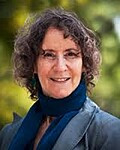The incidence of neurodevelopmental disorders, including autism, ADHD and learning disabilities, has been climbing for over 20 years. During this time, researchers and clinicians have been working to identify the chemical exposures contributing to these disorders with the hope of informing targeted public health prevention and intervention efforts. Over the past two years, an unprecedented alliance of close to 50 top experts concerned with environmental health have worked together as part of Project TENDR (Targeting Environmental Neuro-Developmental Risks) to develop a consensus statement based on the current science and to steer policy efforts to reduce exposures that can lead to impaired neurodevelopment. The consensus statement was published on July 1 and received strong press in the New York Times, CNN and many other news media outlets across the US (see background materials).
Project TENDR is comprised of researchers and health professionals from leading institutions, including Harvard, Columbia, the University of California, the University of Washington, the California EPA, and the National Institute of Environmental Health Sciences (NIEHS) as well as leaders of professional societies and nonprofits focused on environmental health. Co-leaders of the Project are Dr. Irva Hertz-Picciotto, an international expert on environmental factors playing a role in autism and other neurodevelopmental disorders, and Maureen Swanson of the Learning Disabilities Association of America.
On this call three leading researchers discussed the TENDR consensus statement. Dr. Irva Hertz-Picciotto provideed an overview of the consensus process in developing this statement. Then Dr. ce Lanphear explained the statement’s significance in helping to protect children’s neurological health. Finally, Dr. Jeanne Conry discussed the importance of working with women in their reproductive years to reduce their exposure to neurotoxic chemicals. Two of the three presenters on this callbriefed members of Congress on Wednesday, July 13, 2016 on the TENDR Consensus Statement.
Featured Speakers
 Irva Hertz-Picciotto, PhD, MPH, is on faculty at the University of California Davis MIND Institute and Director of the NIH-funded UC Davis Environmental Health Sciences Center. She is an environmental epidemiologist with over 300 scientific publications addressing environmental exposures; their interactions with nutrition, genes or social factors; and their effects on pregnancy, the newborn, and child development. She directs CHARGE (Childhood Autism Risk from Genes and Environment), the first large, comprehensive population-based study of environmental factors in autism, and MARBLES (Markers of Autism Risk in Babies – Learning Early Signs) to search for early markers that will predict autism, starting in pregnancy. Her pioneering research program has identified over a dozen risk factors for autism that are amenable to interventions. She has served on a number of scientific advisory panels and in many other leadership positions during her career. Recently, she co-founded (with the Learning Disabilities Association) Project TENDR (Targeting Environmental Neuro-Developmental Risks), a collaborative effort of scientists, clinicians, policy-makers and advocates that aims to decrease the incidence of neurodevelopmental disorders by reducing neurotoxicant exposures that contribute to them. She received her PhD in Epidemiology from the University of California Berkeley.
Irva Hertz-Picciotto, PhD, MPH, is on faculty at the University of California Davis MIND Institute and Director of the NIH-funded UC Davis Environmental Health Sciences Center. She is an environmental epidemiologist with over 300 scientific publications addressing environmental exposures; their interactions with nutrition, genes or social factors; and their effects on pregnancy, the newborn, and child development. She directs CHARGE (Childhood Autism Risk from Genes and Environment), the first large, comprehensive population-based study of environmental factors in autism, and MARBLES (Markers of Autism Risk in Babies – Learning Early Signs) to search for early markers that will predict autism, starting in pregnancy. Her pioneering research program has identified over a dozen risk factors for autism that are amenable to interventions. She has served on a number of scientific advisory panels and in many other leadership positions during her career. Recently, she co-founded (with the Learning Disabilities Association) Project TENDR (Targeting Environmental Neuro-Developmental Risks), a collaborative effort of scientists, clinicians, policy-makers and advocates that aims to decrease the incidence of neurodevelopmental disorders by reducing neurotoxicant exposures that contribute to them. She received her PhD in Epidemiology from the University of California Berkeley.
 Bruce Lanphear, MD, MPH, is a senior scientist at the Child & Family Research Institute, BC Children’s Hospital and professor in the Faculty of Health Sciences at Simon Fraser University in Vancouver, British Columbia. His primary research has been on quantifying and preventing the adverse consequences of low-level lead toxicity. The long-term goal of his research is to prevent common diseases and disabilities in children, such as asthma and ADHD. To quantify the contribution of risk factors, he tests various ways to measure children’s exposures to environmental toxicants using novel biomarkers measured during pregnancy and early childhood. Dr. Lanphear also designs experimental trials to test the efficacy of reducing children’s exposures to environmental hazards on asthma symptoms and behavioral problems. He received his medical degree from the University of Missouri.
Bruce Lanphear, MD, MPH, is a senior scientist at the Child & Family Research Institute, BC Children’s Hospital and professor in the Faculty of Health Sciences at Simon Fraser University in Vancouver, British Columbia. His primary research has been on quantifying and preventing the adverse consequences of low-level lead toxicity. The long-term goal of his research is to prevent common diseases and disabilities in children, such as asthma and ADHD. To quantify the contribution of risk factors, he tests various ways to measure children’s exposures to environmental toxicants using novel biomarkers measured during pregnancy and early childhood. Dr. Lanphear also designs experimental trials to test the efficacy of reducing children’s exposures to environmental hazards on asthma symptoms and behavioral problems. He received his medical degree from the University of Missouri.
 Jeanne Conry, MD, PhD, is an assistant physician in chief at the Permanente Medical Group and associate clinical professor of OB-GYN at the University of California, Davis. She served at president of the American Congress of Obstetricians and Gynecologists from 2013 to 2014. During her time as Chair of ACOG, District IX, California, she oversaw the Interconception Care Project and is serving as a member of the Select Panel on Preconception Care for the Centers for Disease Control and Prevention. She is also the past Chair for the Preconception Health Council of California. Throughout her career, Dr. Conry has played a key leadership role in women’s health issues. Her current goal with Kaiser Permanente is to develop a comprehensive preconception care program by championing women’s health and pregnancy planning. Dr. Conry earned her medical degree at University of California, Davis, where she also completed her residency in obstetrics and gynecology. She earned a Doctor of Philosophy degree in Biology from the University of Colorado.
Jeanne Conry, MD, PhD, is an assistant physician in chief at the Permanente Medical Group and associate clinical professor of OB-GYN at the University of California, Davis. She served at president of the American Congress of Obstetricians and Gynecologists from 2013 to 2014. During her time as Chair of ACOG, District IX, California, she oversaw the Interconception Care Project and is serving as a member of the Select Panel on Preconception Care for the Centers for Disease Control and Prevention. She is also the past Chair for the Preconception Health Council of California. Throughout her career, Dr. Conry has played a key leadership role in women’s health issues. Her current goal with Kaiser Permanente is to develop a comprehensive preconception care program by championing women’s health and pregnancy planning. Dr. Conry earned her medical degree at University of California, Davis, where she also completed her residency in obstetrics and gynecology. She earned a Doctor of Philosophy degree in Biology from the University of Colorado.
The call was moderated by Elise Miller, MEd, CHE's director. The call lasted one hour and was recorded.
